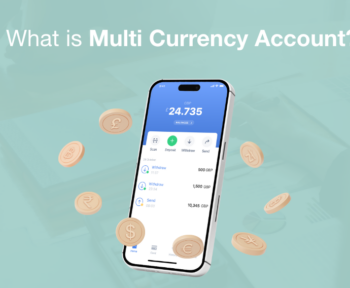The focus of the blockchain technology discussion has changed from interest to adoption. What started out as a cryptocurrency-related experimental idea is now a major force in many international industries. Therefore, you may be wondering, “Is blockchain the future?”.
Because the impact of blockchain promises transparency, efficiency, and inclusivity in finance and beyond, businesses, regulators, and investors are paying more and more attention to it.
The first step in assessing the future of blockchain is to comprehend the definition of blockchain. It is a distributed digital ledger that securely and transparently logs transactions. With this basis, the technology has developed into a system that has the power to transform the global exchange of value and trust.
This innovation is significant not only because it advances technology but also because it spurs economic and cultural change. Blockchain is being investigated by communities worldwide as a means of achieving parity in data management, trade, and finance.
Join us in this blog as we explore from the rise of blockchain technology to tips for getting ready for blockchain development in detail. By the end of this article you will have a wide knowledge about the future of blockchain technology. Let’s start!
What Is the Rise of Blockchain Technology?
Blockchain technology is growing because people need systems that are clear, safe, and don’t need middlemen. Bitcoin was the first to use blockchain as a way for people to send money to each other.
Since then, businesses and developers have found many uses for apps that don’t have anything to do with payments. This rise has also been caused by people becoming more unhappy with centralized systems.
Customers want to pay fewer fees, make transactions faster, and have more control over their money. As a result, blockchain solutions are being tried out in fields like healthcare, insurance, and logistics.
More infrastructure is making it easier for people to use it; governments are looking into rules, and a lot of new businesses are making platforms. It lets people do business all over the world without having to rely on banks or governments.
Users can adapt to the constantly changing world with digital payment services that combine blockchain-inspired innovation with the security and compliance of traditional finance.
To learn more about the benefits of blockchain technology, make sure to check out:
What Motivates Blockchain Technology?
The following section outlines the motivations behind blockchain technology:
- The main thing that drives blockchain is trust. In traditional systems, middlemen are often needed, which costs money, takes time, and opens the door to manipulation. Blockchain makes sure that records are safe and available to all network users by getting rid of these middlemen.
- Trust is not the only thing that drives blockchain. Efficiency and innovation are also important. It automates tasks that used to require human oversight by allowing programmable transactions through smart contracts.
- Blockchain makes supply chains more accountable by letting everyone check the products in real time. It encourages people who don’t have bank accounts to get involved in the financial sector by giving them banking options.
- When there are fewer middlemen, transactions happen faster and cost less. Because of this, many industries, such as healthcare and supply chains, are trying out blockchain technology.
What Is the Biggest Impact of Blockchain?
The biggest impact of blockchain is openness. People who are part of a blockchain can see every transaction, and they can’t change it. This lowers the risk of fraud and builds trust between people.
In the financial world, it means that transactions are settled more quickly. This means that public sectors will be held more accountable in a clear way. Another effect is financial inclusion. Blockchain wallets let people store and send money in places where traditional banks aren’t very common.
This opens up opportunities for people to take part in the global economy. Blockchain makes international trade faster for businesses by lowering the risks of exchange rates and fake documents.
Blockchain creates an environment where trust is built into the system for both people and businesses. This makes it easier for people from different countries and industries to work together.
Safe payment processors like Jeton can help you use the benefits of blockchain technology in your daily life, from sending money to businesses to sending money to people in other countries.

How Is Blockchain Used in Various Industries?
Today, blockchain is used in a lot of different fields. The following explains how blockchain is used in various industries:
- It makes it easy to keep track of goods in logistics.
- It keeps medical records safe for patients.
- It helps protect copyright in the entertainment industry.
- It makes managing digital identities and election security in government better.
- Energy markets are also using blockchain technology to keep an eye on renewable energy certificates and make it easier for people to trade power with each other.
- Education is looking into blockchain as a way to make certificates that can’t be changed.
- Blockchain is even being used in farming to find out where food comes from and stop fraud.
These areas all show how blockchain technology can change the way things are done. Blockchain is one of the most flexible technologies available today because it can be changed to fit the needs of different industries.
Because of this flexibility, businesses can easily connect to both modern digital frameworks and traditional financial systems. This ensures a reliable payment partner for companies transitioning to blockchain.
Where Will Blockchain Technology Be in 5 Years?
In the next five years, the future of blockchain will likely be used by a lot of people. More and more banks will use blockchain for payments and settlements. Industries will widely use blockchain-based solutions, and governments will make rules that are more clear.
It is expected that the use of blockchain technology will grow a lot, including both decentralized apps and tokenized assets. Experts also think that, like the internet today, blockchain will eventually become invisible to users.
People will use apps that run on blockchain without having to understand how the technology works. Partnerships between fintech companies, blockchain innovators, and traditional finance will help this easy-to-use technology spread.
By predicting where blockchain will be in the future, companies and investors can make plans that take advantage of those opportunities. Users can get ready for the next step in the evolution of blockchain by connecting established financial systems with new digital ecosystems.
It is changing the way people trade value around the world and changing whole industries. People and businesses can do well in this new age of digital finance thanks to services like Jeton. The impact of blockchain will only get more intense as more people use them.
Which Industries Will Use Blockchain in the Future?
It is expected that many industries will start using blockchain in the next few years. As decentralized apps and tokenized assets become more popular, finance will still be at the top of the list.
In healthcare, blockchain will be used more often to make sure that patient records are correct and safe. Supply chains and logistics will use blockchain to keep track of goods and make sure they are real.
Energy markets will also look into blockchain to improve peer-to-peer power trading and keep track of renewable energy credits. Using blockchain-based certification in schools could help cut down on fake academic credentials.
Blockchain has even caught the attention of the farming industry, which is using it to check where food comes from and make sure it meets quality standards. E-commerce and retail are also using blockchain to build trust with customers.
Blockchain offers unique solutions for consumer industries, such as making sure that products are sourced ethically and proving that they are real. The insurance industry could also use blockchain to handle claims, which would speed up the process and cut down on fraud.
Using blockchain in many industries around the world makes people more trusting and efficient. Jeton helps this growth by offering safe payment options that work well with blockchain-driven innovation. This makes it easier for people and businesses to switch to digital finance.
Which Industry Will Benefit Most from Blockchain?
The impact of blockchain will probably help the financial sector the most, even though many other industries will also benefit. Transfers between countries happen faster, settlement times are shorter, and costs go down.
Blockchain technology will also make other fields, like entertainment and real estate, more open and easy to use. Legal issues and paperwork often slow down real estate deals. Blockchain makes these problems less of a problem by automating contract signing and digitizing ownership records.
Blockchain technology protects intellectual property in the entertainment industry and makes sure that artists get fair pay through open royalty structures. The healthcare industry could also benefit a lot as safe data sharing becomes more important.
The travel industry could also use blockchain technology to make safe digital identities, which would improve airport security and make travel easier for everyone. Blockchain changes how money is moved around, making systems fairer and more efficient.

How Will Blockchain Change the Future?
The following explains the future of blockchain and its potential impact:
- People think that the future of blockchain will change how people think about trust. Businesses will use blockchain to make sure their rules are clear, governments will use it to keep track of people’s identities, and smart contracts will automate legal agreements.
- Blockchain will change more than just the world of finance. It will also change how we protect intellectual property, vote, and learn. It is also expected that blockchain will work with AI and the Internet of Things.
- Blockchain technology lets devices talk to each other safely, and AI systems can make better decisions by using open data sources. As a result of these integrations, blockchain technology will become a more common but still important part of digital infrastructure. Blockchain could also change the way we protect the environment.
- Blockchain technology can give systems that keep an eye on carbon emissions or the creation of renewable energy accurate and safe data. This makes sure that businesses and governments are held accountable for their efforts to fight climate change.
Blockchain gives people power by building trust in systems and removing the need for middlemen. These new technologies become easier to use with fast, worldwide payment options that improve blockchain functionality while still ensuring compliance.
Is Blockchain Still Relevant in 2025?
Some people are still unsure of how important blockchain will be in 2025, but it is more important than ever. As more people use blockchain, it becomes a part of everyday life, from payments to data security.
The definition of blockchain is still changing, but at its core, it is still a safe and clear digital record. Critics say that blockchain is overhyped, but real-world uses show that this isn’t true. Central banks are testing digital currencies that are based on blockchain technology.
Governments are testing decentralized identity systems. Businesses are using blockchain technology to save money and build trust with their partners. These examples show how strong blockchain technology is.
Another reason blockchain is still important is that it can be used in many different ways. Like other technologies, it adapts to new use cases and rules. Blockchain is a versatile technology that can be utilized to tackle emerging challenges in international trade, governance, and finance.
Blockchain stays around even as technology changes because it solves real problems with trust and transparency. Jeton makes this tenacity stronger by giving users access to financial services that are fast and safe, just like blockchain.
Tips for Getting Ready for the Blockchain Development
The following tips outline how to prepare for blockchain development:
- To get ready for blockchain’s growth, businesses should build infrastructure that works with it, train their workers, and start small with pilot projects. People should stay up-to-date, learn the basics of blockchain technology, and look into useful uses like tokenized assets and wallets.
- Being proactive makes sure you’re ready when adoption picks up speed. Businesses need to figure out how blockchain technology fits into their systems for following the rules. Following the law early on will lower risks because rules will affect how many people use the product.
- Companies that think about working with blockchain startups on joint ventures could also get a competitive edge by getting access to new ideas before they become popular. People who are getting ready for the growth of blockchain should think about learning new skills.
- Learning about smart contracts, decentralized apps, and digital identity solutions can help you find new jobs. Blockchain technology’s openness and safety may help business owners come up with new ways to run their businesses.
- People and businesses can use blockchain to get ready for the next ten years if they use the right approach. If they adopt blockchain now, they will have a better chance of doing well in a global economy that values digitalization.
Using blockchain early on gives businesses and users an edge over their competitors. This readiness is made possible by providing reliable tools for digital wallets, international payments, and compliance.
Wrapping Up
Blockchain is already transforming the way businesses operate, and its influence will only continue to grow. From healthcare and logistics to global finance, blockchain’s ability to ensure transparency, speed, and security makes it a cornerstone of the digital future.
As more industries adopt blockchain, financial tools like Jeton Wallet and Jeton Card empower users to experience these innovations firsthand—offering secure, borderless, and efficient transactions for both personal and business needs.
The future of finance is digital, decentralized, and transparent. Download the Jeton app today via Google Play or App Store to be part of this transformation. Sign up now!


